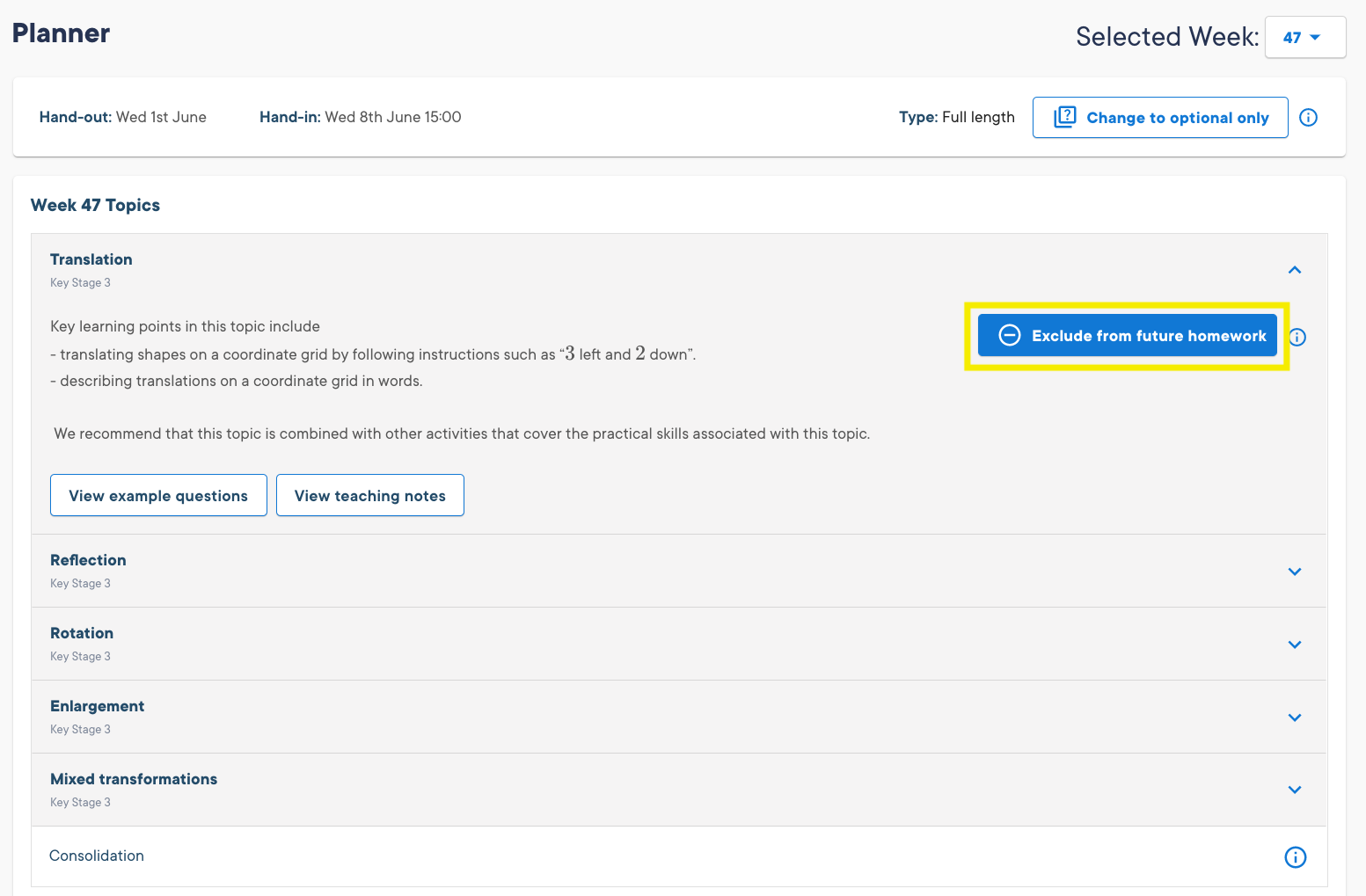What is consolidation?
Compulsory Homework is made up of:
- In Focus topics (around 60%) which are assigned by the teacher in the Planner each week, and
- Consolidation topics (around 40%).
Consolidation topics come from previous weeks (including from previous academic years)
- These include topics that students have covered but haven't yet mastered, as well as revision questions on topics they haven't seen recently.
- Topics in the consolidation part of homework are selected from topics a student has seen around 3 and 10 weeks* ago, giving students that all-important spaced retrieval practice.
- This 3 weeks and 10 weeks system continues across the beginning of a new school year, so when students move up a year they could still receive consolidation questions on topics taught at the end of the previous academic year.
* The 3 and 10-week gaps are based on actual homework weeks. Holiday weeks are not included in this count.
It is not possible to see in advance what topics appear in Consolidation
Consolidation is tailored to each student and topics will be chosen when they first open their homework, depending on their recent answer history up to that point.
You can see where a topic came from after homework has been set
Once a homework has been set, and a student has started/finished answering questions, you can hover over an individual student task on the Hand in Page to see when the topic was originally set:

New students don't see consolidation topics immediately
Students new to Sparx won't have consolidation topics in their first few homeworks. Instead, these will be almost entirely made up of questions from the topics assigned each week. If there are not enough questions to create a full homework then further questions on fundamental content from assumed previous curriculums may be included. For example, a GCSE student new to Sparx may see a fundamental KS3 topic such as Adding Decimals.
Add your own topics for revision and consolidation
If you want to be certain that students will revisit specific topics of your choosing then we suggest you add them manually into your SoL in the same way you add new topics. As long as you put no more than 3 or 4 topics in for a 60-minute homework, then students will be set questions on these topics that week AND they could return in the consolidation homework in the next few weeks too, meaning they get plenty of chance to practice.
Removing topics from consolidation
If you would like to stop a topic from last academic year appearing in consolidation
- Go to the homework planner page in your teacher site
- Select the upcoming homework, and click on the information (i) icon next to consolidation
- Go to the Topics from Previous Academic Year tab and untick any topics that you want to be excluded from consolidation

If you have a topic that was set in error and you'd like to remove it from future consolidation
- Go to the homework planner page in your teacher site
- Select the class and homework week containing the topics that you'd like to exclude from future consolidation
- For any topics that you'd like to exclude, click the 'Exclude from future homework' button

- You reverse the change by pressing the 'Include in future homework' button
- You decide to add this topic into the classes homework plan in a future week

